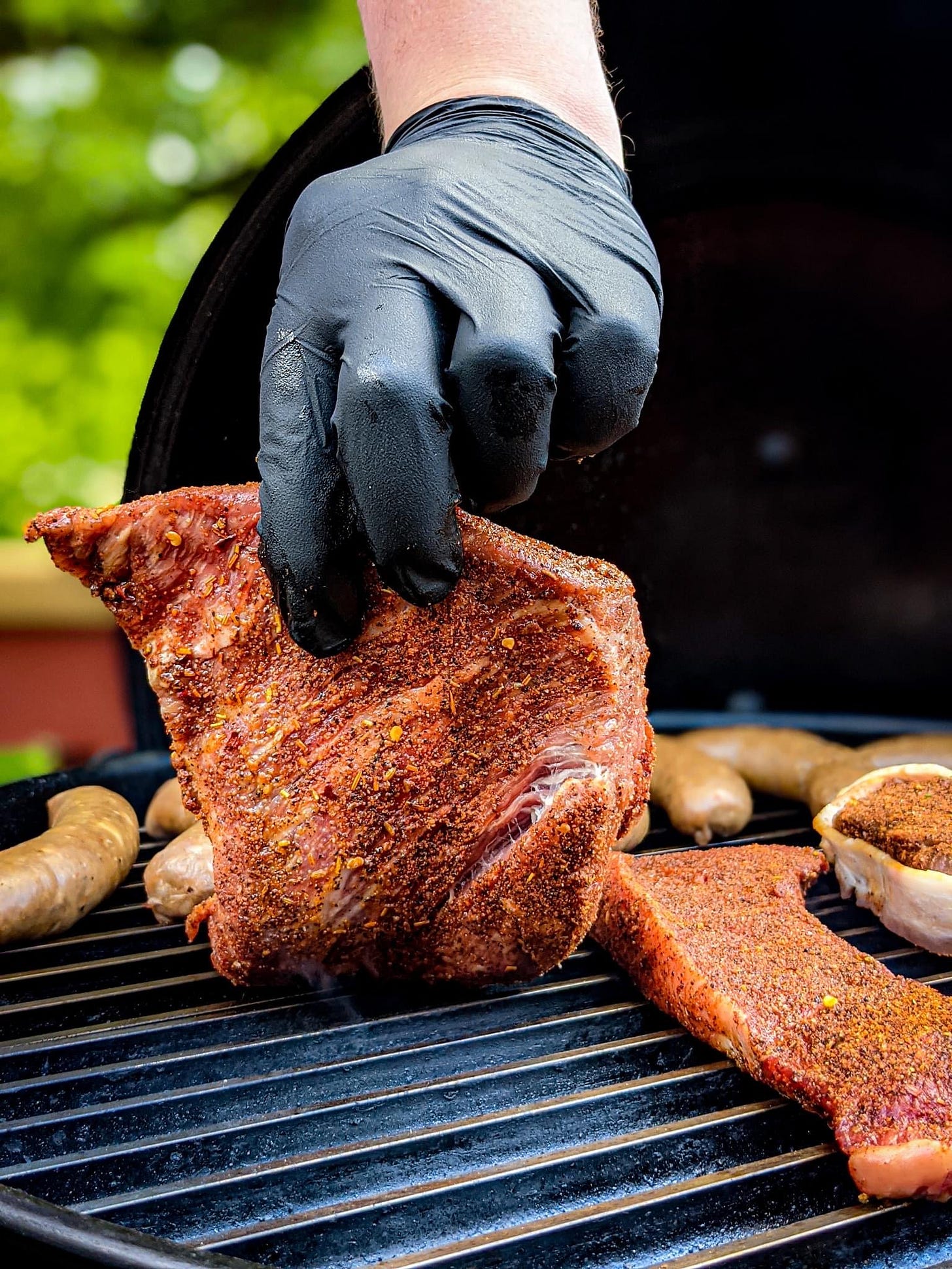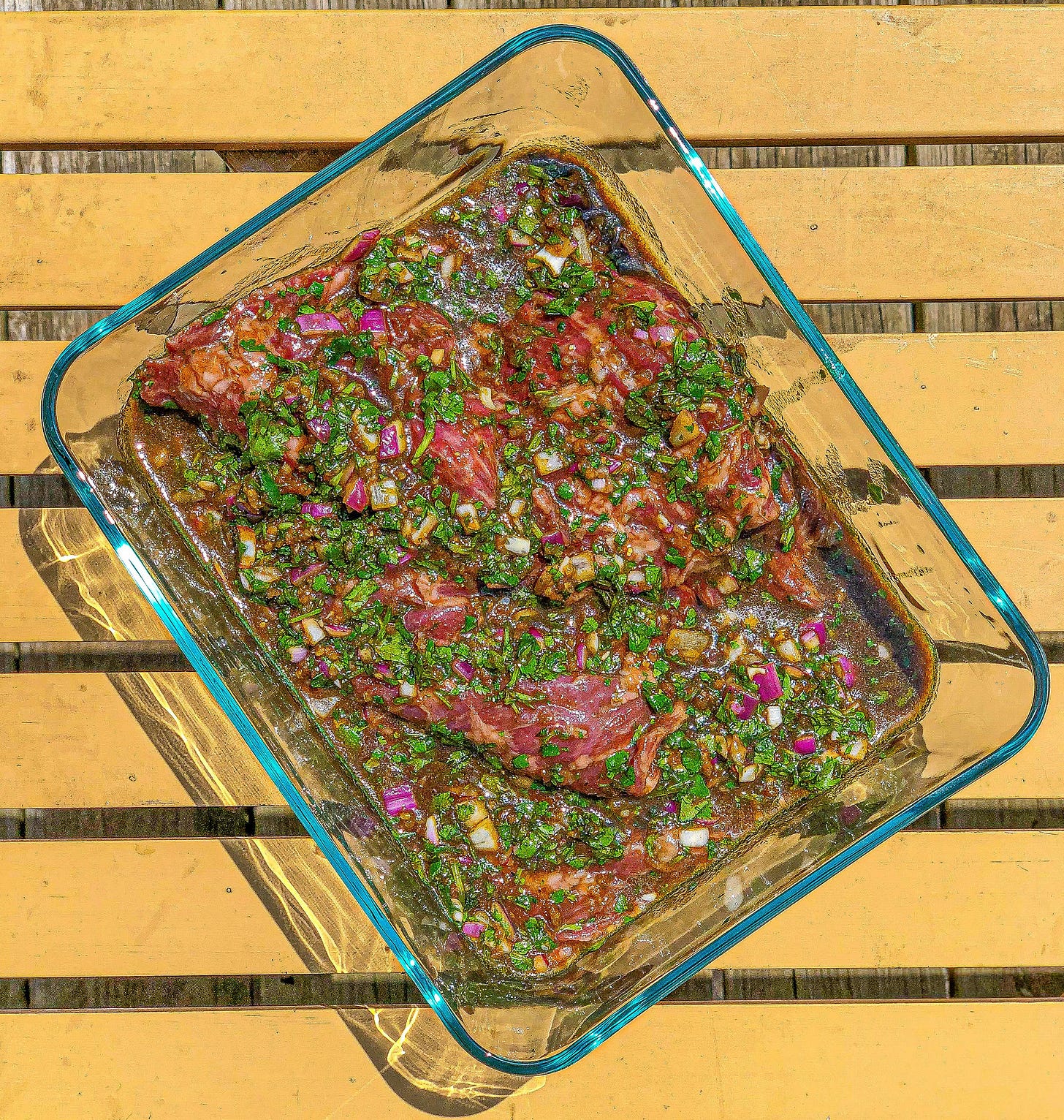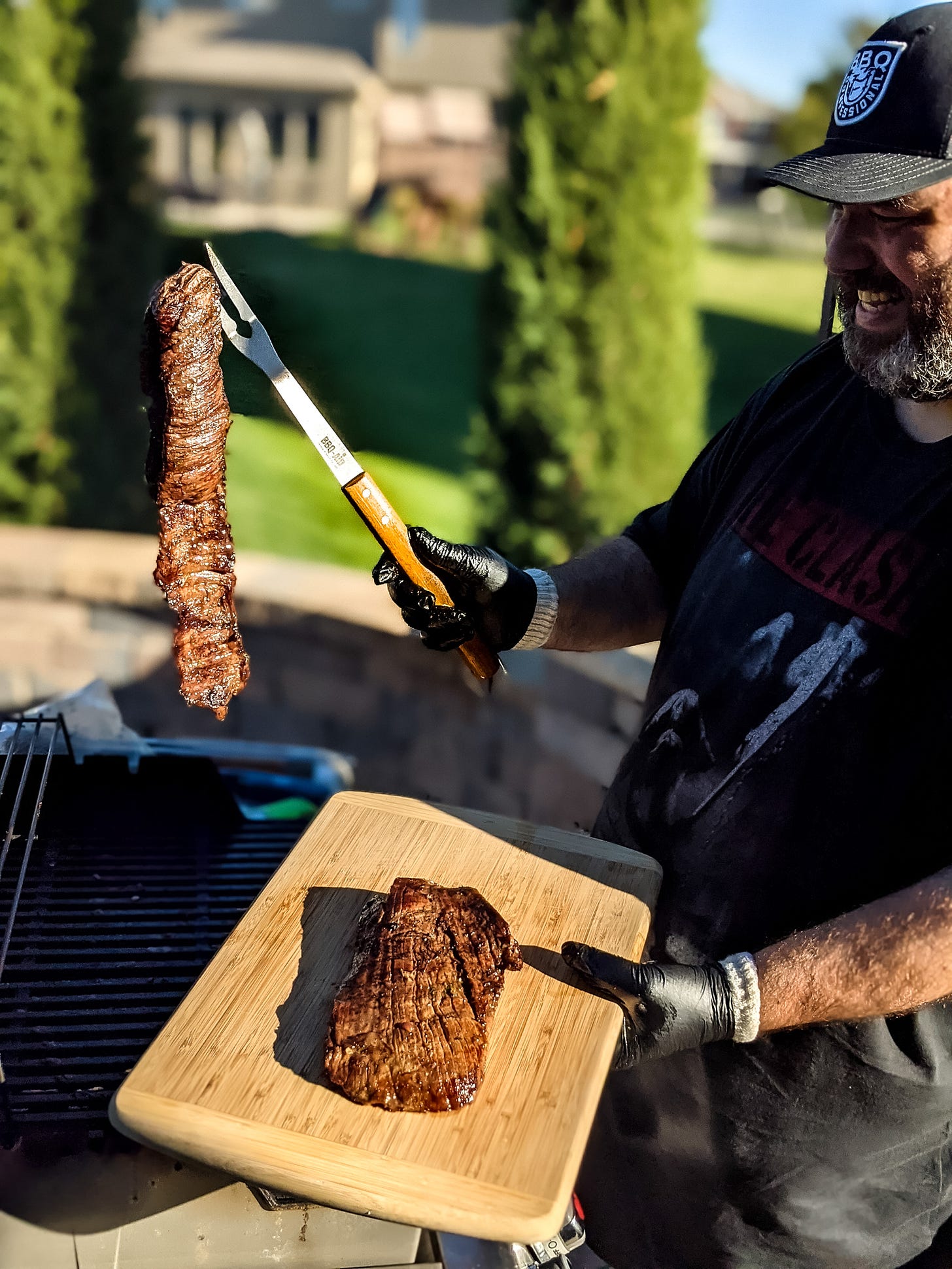The Art of Seasonings and Marinades
Bre Via shares the secrets to infusing great flavor into grilled meals this summer
Bre Via, who leads the Smoke 'n Magic competition BBQ team, writes this week's guest article. With a mission to make the smoke and magic of BBQ approachable for everyone, Smoke 'n Magic is known for its family-made, competition-tested sauces and rubs. Whether on the competition stage or in the backyard, Bre and her team bring a touch of magic to every BBQ experience. If you want to write for The Smoke Sheet, please get in touch.
As the days stretch longer and the scent of charcoal drifts through backyards, grilling season awakens with a promise: bold flavor, perfectly cooked proteins, and that magical kiss of smoke. In this month’s feature, we dive into the flavorful world of seasoning and marinades—because mastering these is the secret to turning good grilling into unforgettable meals.
The Marinade Equation: Balance is Everything
A marinade isn’t just a sauce; it’s chemistry in action. Whether you're prepping juicy chicken thighs or a hefty flank steak, a good marinade should strike the perfect balance between acid, fat, salt, and flavor:
Acid (vinegar, citrus juice, wine) tenderizes by breaking down muscle fibers.
Fat (oil, yogurt, coconut milk) helps carry flavor deeper and keeps proteins moist.
Salt not only seasons but also draws moisture in, enhancing juiciness.
Flavor comes from aromatics—think garlic, herbs, spices, soy sauce, mustard, or Worcestershire.

Quick Marinade Pairings:
Chicken: Lemon juice + olive oil + garlic + rosemary + sea salt
Beef: Red wine + soy sauce + brown sugar + black pepper + thyme
Pork: Apple cider vinegar + Dijon mustard + maple syrup + sage
Seafood: Lime juice + coconut milk + chili flakes + cilantro
💡 Pro Tip: Don’t overdo the acid—too much for too long can turn proteins mushy, especially delicate ones like fish. For red meats, 4–8 hours is plenty; poultry and pork can go a bit longer. Seafood? Stick to 30–60 minutes tops.
Dry Rubs vs. Marinades: Choosing the Right Path
When it comes to live-fire grilling, both dry rubs and marinades have their place—but the choice depends on your flavor goals and cooking method.

Dry Rubs:
Best for direct grilling or smoking where a crust (aka the bark) is desirable.
Typically a mix of salt, sugar, herbs, and spices.
Encourages caramelization and a textured exterior.
🌶️ Classic Dry Rub Elements:
Coarse salt
Brown sugar or turbinado
Paprika (smoked or sweet)
Garlic/onion powder
Cayenne or chili powder
Optional: coffee grounds or cocoa powder for depth
Use dry rubs when you're after a rich, intense outer crust that plays beautifully with the natural flavor of the meat and smoke.

Marinades:
Ideal for adding moisture and tenderizing lean cuts.
Great when time allows for soaking or when you want subtle internal flavor.
Can sometimes inhibit a crust if not patted dry before grilling—so towel off excess before cooking.
💡 Pro Tip: Forgot to marinate overnight? No worries—try a vacuum-sealed bag or inject flavor directly using a marinade injector. Or, skip the soak and opt for a bold finishing glaze brushed on in the final minutes of grilling.

Smoke and Seasoning: The Balancing Act
Too much seasoning can clash with the nuanced smokiness you get from hardwood charcoal or wood chunks. The key is to enhance smoke, not cover it up.
Tips for Complementary Seasoning:
Go easy on sugar when smoking low and slow—it can burn and turn bitter.
Use wood-friendly herbs like thyme, oregano, and bay leaf—they play well with mesquite, hickory, and oak.
Layer flavors: Season lightly before grilling, then finish with a compound butter or a drizzle of citrus-herb oil to brighten smoky flavors.
Brine first, season second: For poultry or pork, a brine imparts moisture and salt deep inside, allowing for lighter surface seasoning.
🔥 Smoke Pairing Cheat Sheet:
Hickory: Pairs well with bold rubs—paprika, garlic, and black pepper.
Applewood: Lovely with sweeter rubs—brown sugar, cinnamon, fennel.
Mesquite: Powerful, so balance with simple salt-pepper rubs or earthy herbs.
In the End, Taste Is King
Whether you’re marinating flank steak in a zesty citrus blend or rubbing baby backs with a Memphis-style mix, seasoning is about balance. Let the natural character of your protein shine, amplify it with thoughtful spice, and let smoke be the final note in your grilled masterpiece.
This season, fire up the grill—and experiment boldly. Because when it comes to seasoning, the real art lies in knowing just how much is enough.
Bre Via
Smoke ‘n Magic BBQ Team
Keep reading with a 7-day free trial
Subscribe to The Smoke Sheet to keep reading this post and get 7 days of free access to the full post archives.







